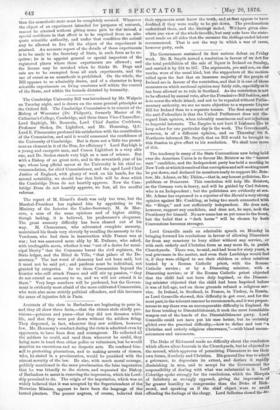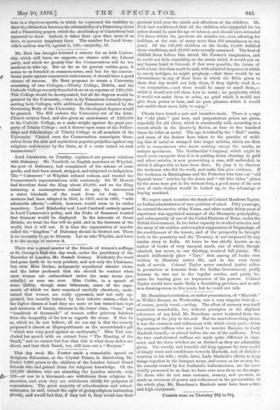The Duke of Richmond made no difficulty about the resolution
which allows silent funerals in the Churchyards, but he objected to the second, which approves of permitting Dissenters to use their own forms, if orderly and Christian. His general line was to admit a grievance, to depreciate its extent, and declare it rapidly diminishing in area, and to accept for the Government the responsibility of dealing with what was substantial in it. Lord
Coleridge spoke strongly for the resolutions, which the Marquis .4 of Salisbury as strongly opposed, giving the impression of far greater hostility to compromise than the Duke of Rich- mond, and speaking as if the chief object were to avoid offending the feelings of the clergy. Lord Selborne closed the ae-
bate in a vigorous speech, in which he expressed his inability to draw the distinction between the admissibility of a Dissenting hymn and a Dissenting prayer, which the Archbishop of Canterbury had appeared to draw. Indeed, it takes finer eyes than most of us have, to perceive imaginary lines. The number for Lord Gran- ville's motion was 92, against it, 148,—majority, 56.































 Previous page
Previous page